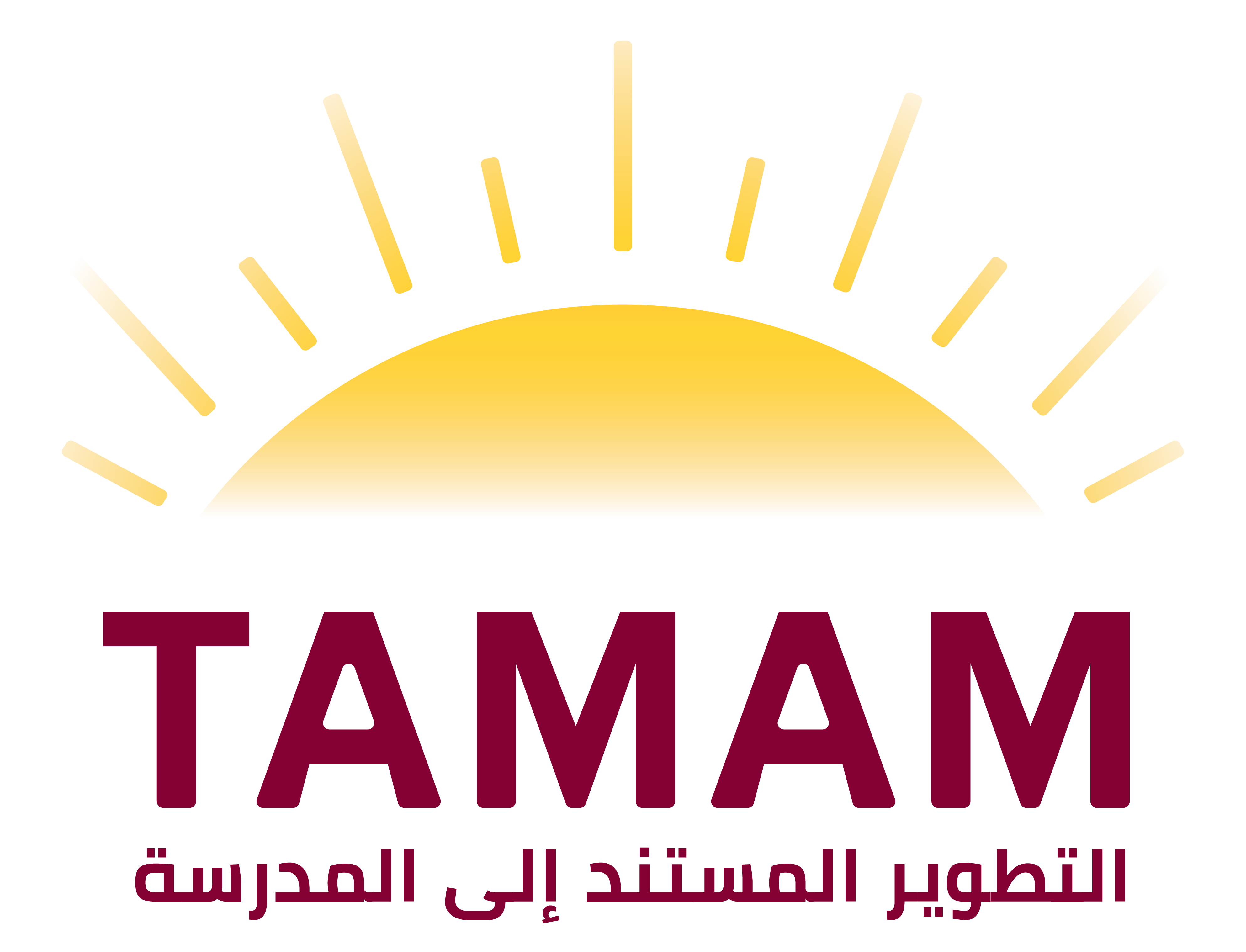This report describes the process followed by the Project Steering Team [PST] of the TAMAM project while designing and implementing its professional development activities.
It highlights the “evolving design plan” approach the PST has used while planning and implementing PD activities. PST actions – and decisions on their sequence – have been based on evidence generated through monitoring training progress, and identifying the challenges faced during the training implementation.
The report narrates the evolution of the PD activities from being narrowly conceived initially around engaging teams in action research as the main foci of capacity building, to a broader conception of having the teams embark on a school-based improvement journey, where action research is a tool used among many to effectively implement and sustain this improvement. The report includes a description of the Competencies, and why and when they have been introduced throughout the PD process.
Also, it describes the PD approach used which is rooted in experiential learning, mentoring, and encouraging reflective practice. The report concludes by presenting an “emerging model” of PD grounded in lived experiences and mindful of the unique cultural characteristics of its context.
The model consists of a set of 11 Pillars and a proposed improvement journey along which the PD activities are organized.
The Pillars constitute the foundational principles guiding both the processes and the learning experiences along the journey which are:
- Experiential learning.
- Mentoring approach.
- Decisions and actions driven by needs.
- Systematic documented practice.
- Collaborative inquiry.
- Professional collaboration.
- Reflective dialogue and practice.
- De-privatization of practice.
- Leadership for change.
- Evidence based decisions.
- Evolving design planning.
The journey comprises of:
- Identifying a problem.
- Designing an innovative intervention.
- Implementing the intervention.
- Evaluating its impact; and finally.
- Taking actions based on this evaluation.
Throughout this journey, school teams will be trained on:
- Action research
- Collaboration
- Documentation of practice
- Professional dialogue
- Reflective thinking
- Evidence based decision
- Planning and leading change
Throughout this journey teams pass through cycles of inquiry that would allow them to gather data and reach insights that they need for taking action and moving forward along the journey; ultimately reaching their goals for improvement.
View full text below
Technical Report 4: Building Leadership Capacity for School-Based Reform : TAMAM professional development journey in Phase I – By Rima Karami Akkary, Mary Saad, & Rola Katerji with Sara Halwani -2012